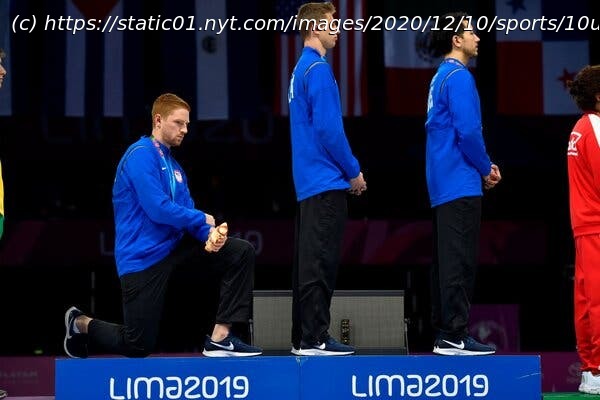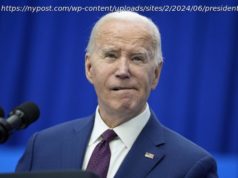Breaking from International Olympic Committee guidelines, the United States Olympic and Paralympic Committee announced it would not penalize athletes who participate in demonstrations.
The United States Olympic and Paralympic Committee announced on Thursday that it would no longer punish athletes who participate in peaceful protests, such as kneeling or raising a fist at a medal ceremony, putting itself in direct conflict with the longstanding policy of the International Olympic Committee. The U.S. committee’s announcement was made in conjunction with a formal recommendation from a council led by American athletes that asked the I.O.C. to change its policy, known as Rule 50, while working on justice causes. The policy has come under heightened scrutiny as mass protests calling for racial equality, including demonstrations by professional athletes, have spread widely this year in the United States and other countries. “It is critical to state unequivocally that human rights are not political, and peaceful calls for equity and equality must not be confused with divisive demonstrations,” Sarah Hirshland, chief executive of the U.S.O.P.C., said in a letter on Thursday to American Olympic athletes. Rule 50 of the Olympic Charter prohibits individuals from demonstrating or displaying “political, religious or racial propaganda” around Olympic sites during the Games. It was invoked, for example, at the 1968 Summer Olympics in Mexico City, when the American sprinters John Carlos and Tommie Smith were expelled from the Games for raising their fists on the medals podium during the playing of the U.S. national anthem. For now, the change in policy from the U.S.O.P.C. does not mean that American athletes will be free to protest at the Summer Olympics in Tokyo next year without the threat of punishment. Rule 50 offers no specific guidelines for punishing athletes, only stating that discipline should be determined on a case-by-case basis with cooperation from national governing bodies and international sports federations.






